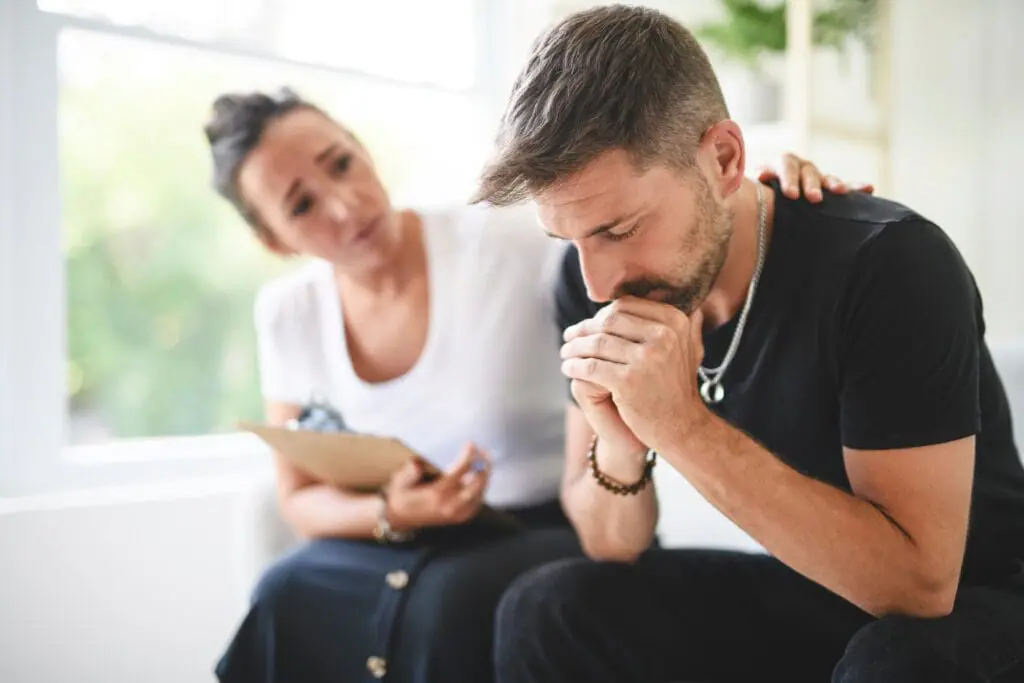What Are Withdrawal Symptoms?
Withdrawal symptoms occur when an individual discontinues using a substance, such as drugs or alcohol, to which they have become dependent. These symptoms are how the body reacts to the absence of the substance it has grown accustomed to. Withdrawal symptoms can vary widely in severity and duration depending on the substance, the individual’s history of use, and their overall health.
Common Withdrawal Symptoms
Nausea and Vomiting
Nausea and vomiting are common physical symptoms during withdrawal, making it crucial to stay hydrated and seek medical supervision. These symptoms can be particularly severe in cases of alcohol or opioid withdrawal.
Anxiety and Depression
Emotional distress is a typical response to withdrawal. It’s essential to address these feelings to prevent relapse. Therapy and support groups can be immensely helpful in managing these symptoms.
Insomnia
Difficulty sleeping is prevalent during withdrawal. Establishing a healthy sleep routine and avoiding caffeine and screens before bedtime can alleviate this symptom.
Muscle Aches and Pains
Pain and discomfort are often part of the withdrawal process. Over-the-counter pain relievers and relaxation techniques can help manage these physical symptoms.
Cravings
Intense cravings for the substance of abuse are common during withdrawal. Coping strategies, such as distraction techniques and mindfulness exercises, can effectively reduce cravings.
The Role of Detox Centers
Seek Professional Help
If you or someone you know struggles with withdrawal symptoms, seeking professional help is paramount. At San Diego Detox, our experienced staff is trained to provide the necessary medical and psychological support during this challenging time. We offer a safe and comfortable detoxification environment, ensuring you receive the care you need.n
Develop a Support Systemn
Building a solid support system is crucial for successful withdrawal. Surround yourself with friends and family who understand your journey and can offer emotional support. Additionally, consider joining support groups or therapy sessions to connect with individuals with similar experiences.n
Maintain a Healthy Lifestyle
Regularly eating nutritious meals and exercising can significantly improve your physical and mental well-being during withdrawal. Proper nutrition and physical activity help the body recover and produce feel-good hormones to combat anxiety and depression.n
Mindfulness and Relaxation Techniquesn
Practicing mindfulness, deep breathing, and relaxation exercises can help reduce anxiety and stress during withdrawal. These techniques can effectively manage emotional symptoms and promote overall well-being.n
Medication-Assisted Treatmentn
Sometimes, medication may be prescribed to ease withdrawal symptoms and reduce cravings. These medications are only provided under the supervision of medical professionals, and their use is tailored to the individual’s specific needs.n
Your Road To Recovery
Understanding withdrawal symptoms and coping strategies is vital in your recovery journey. Remember that everyone’s experience is unique, and what works for one person may not work for another. The key is to stay committed, seek professional guidance, and always maintain sight of your goal.n
FAQS
Withdrawal symptoms vary in duration, with some lasting a few days to a few weeks. The timeline depends on the substance and the individual.
While detoxing at home is possible, it’s safer and more effective to undergo detoxification under medical supervision, especially for severe cases. Professional care ensures your safety and comfort during the process.
Dual diagnosis refers to the presence of both a substance use disorder and a mental health disorder. It’s essential to address both issues simultaneously for successful recovery. At San Diego Detox, we specialize in dual diagnosis treatment to provide comprehensive care.
Some natural remedies, such as herbal teas and relaxation techniques, can help alleviate mild withdrawal symptoms, but they should complement professional treatment. It’s essential to consult with a healthcare provider before using any natural remedies.
Relapse can occur, but with the right support and coping strategies, it can be minimized. Professional help and a strong support system are key in preventing relapse. Our team at San Diego Detox is dedicated to helping you stay on the path to recovery.
Resources
- https://www.niaaa.nih.gov/alcohols-effects-health/overview-alcohol-consumption/what-standard-drink
- https://www.drugfreeworld.org/drugfacts/alcohol/short-term-long-term-effects.html
- https://www.ncbi.nlm.nih.gov/pmc/articles/PMC2913110/
- https://www.webmd.com/mental-health/addiction/understanding-alcohol-abuse-symptoms






